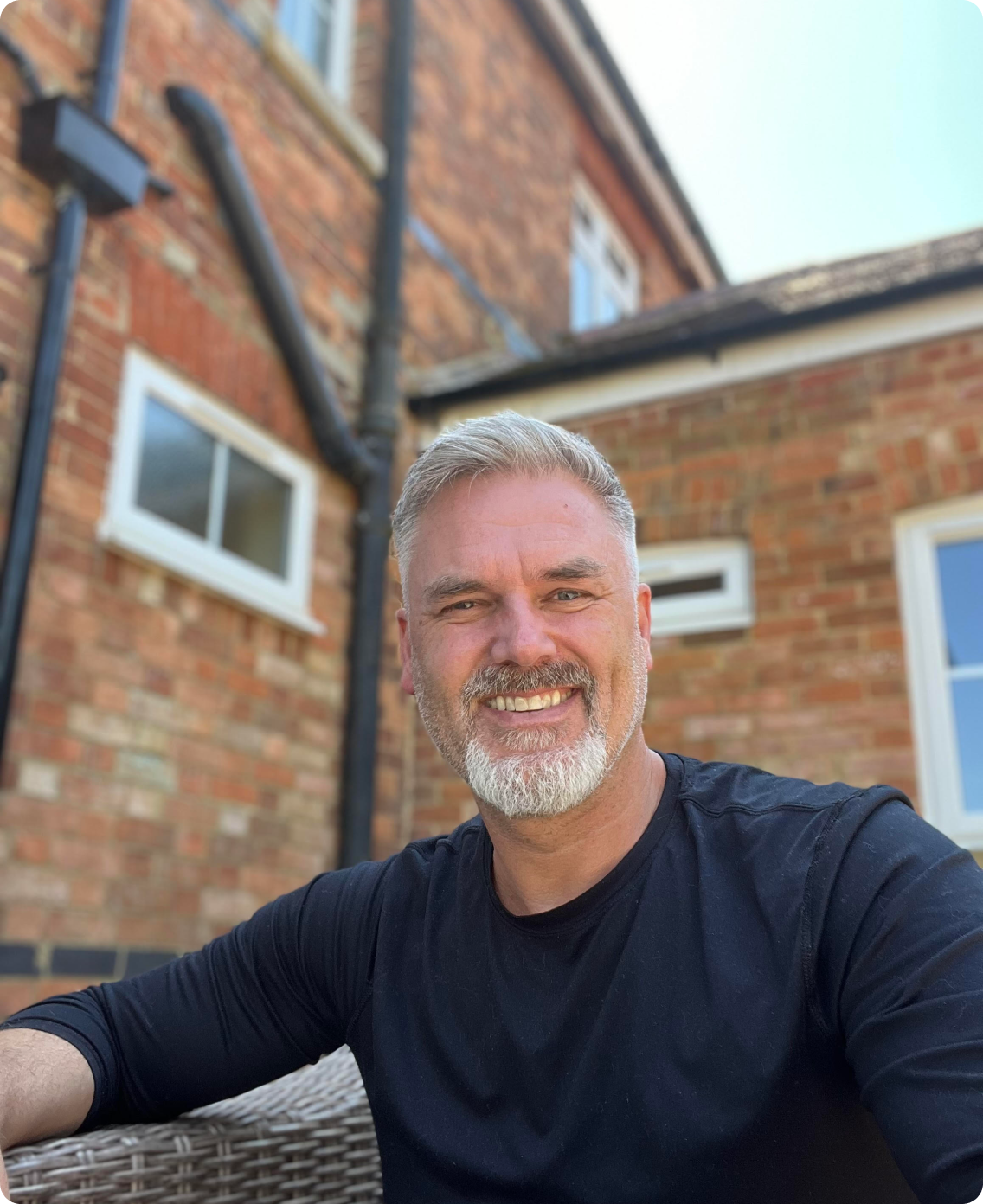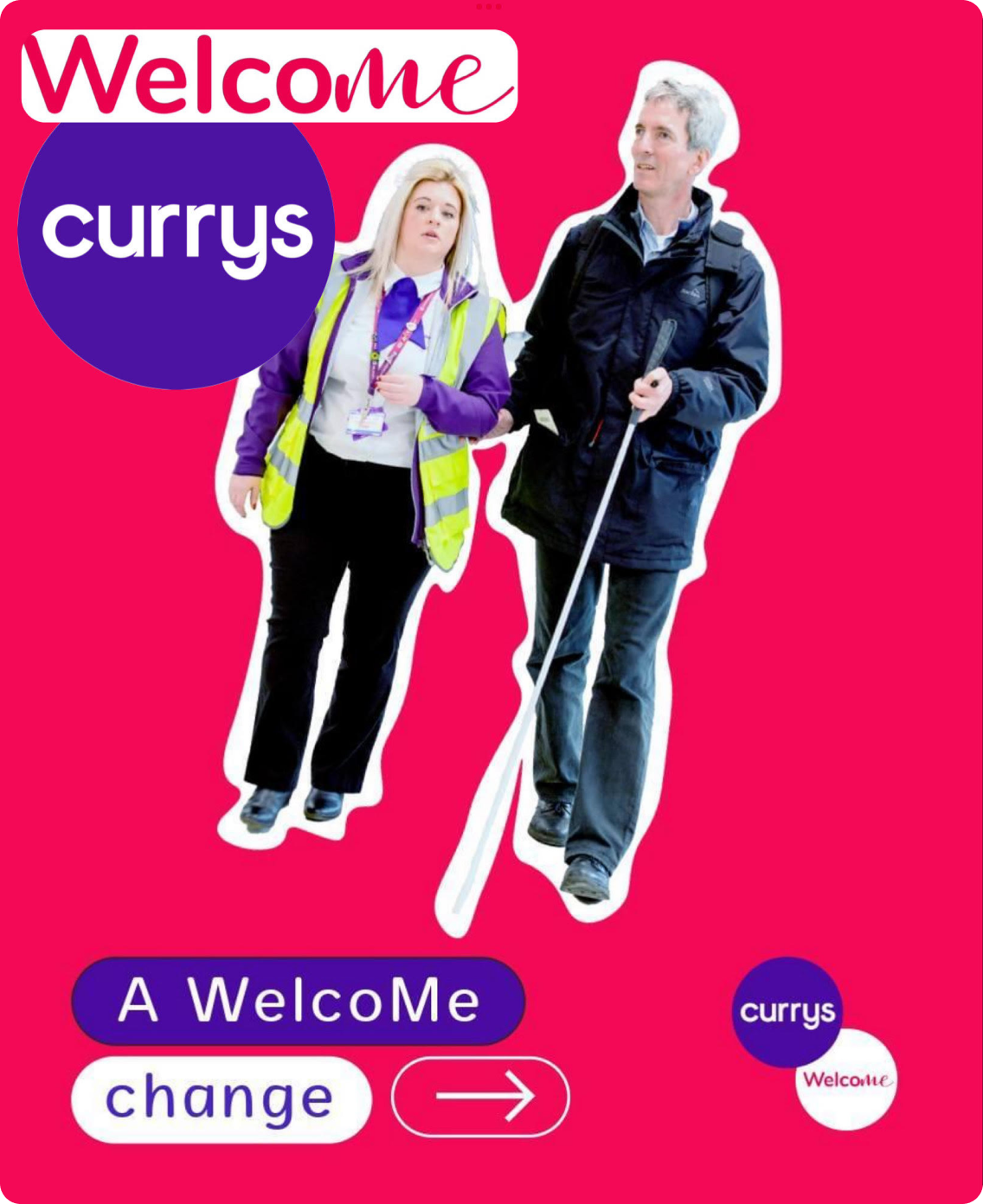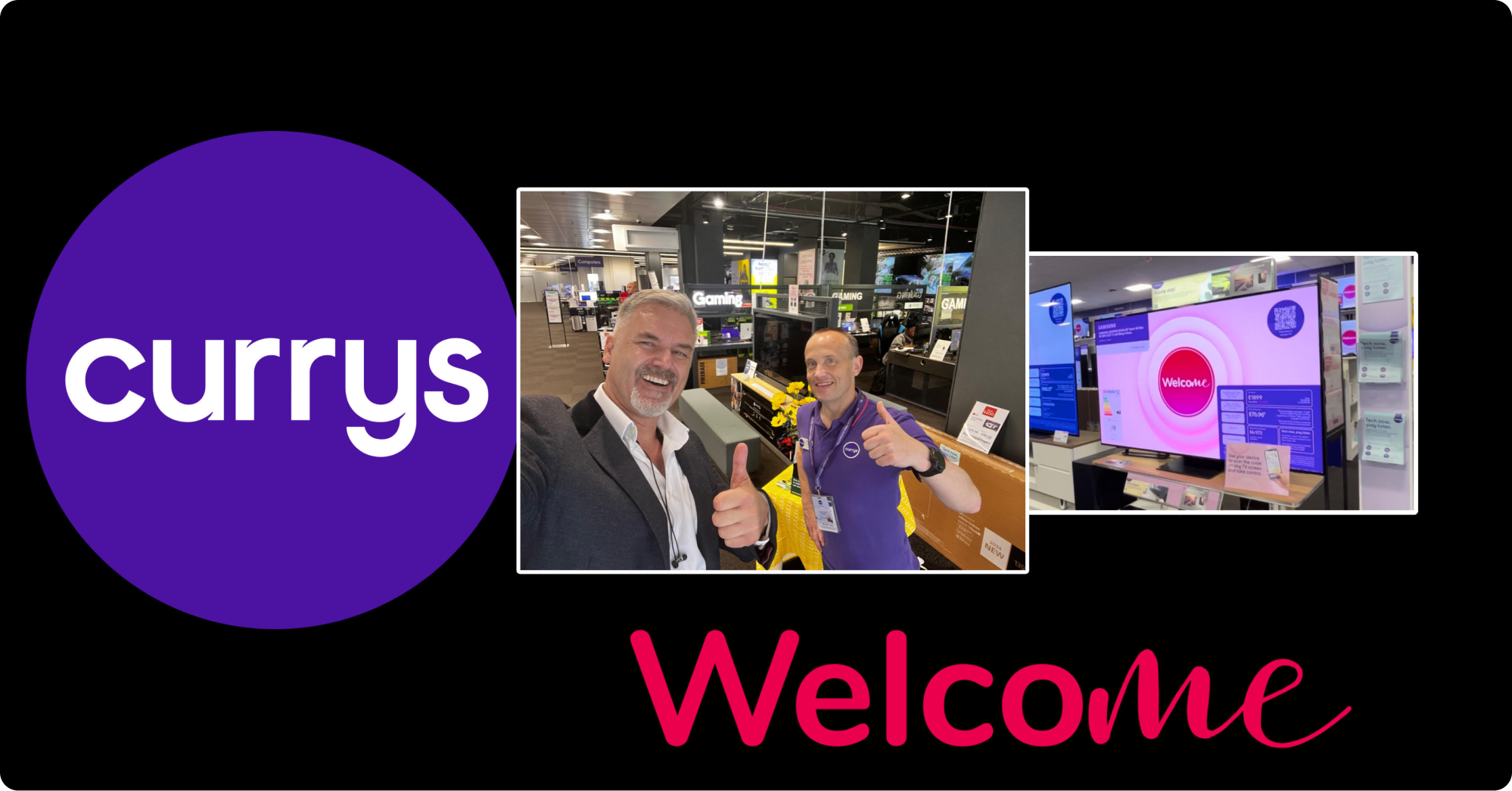All Articles
4 min read
From Guide Dogs to Tech: Empowering the Disabled
Written by
Gavin / WelcoMe
Published on
July 31, 2024

Hello all, I’m Gavin. I’m currently the CEO of a technology company, but it wasn’t always this way. This article talks about my journey from working with Guide Dogs to launched WelcoMe to help empower the disabled community.
My Time at Guide Dogs for the Blind
For 18 years, I worked for Guide Dogs for the Blind as a Mobility Instructor. My job was to provide finishing training for soon-to-be guide dogs. They had already spent up to 18 months with Puppy Walkers and Dog Trainers before they were passed on to me for the final part of their journey. My job was then to match the dog with a particular person by looking at the dog’s abilities and the workload and environment the owner might need them to work in. A dog working in a city centre will have very different qualities than one working in a quiet country village. After matching, I would then train both client and dog together, and over a period of roughly eight weeks, we would get to a stage where I could wave them off down the road, embarking on their new life together.
Observations and Inspiration
It was and is an amazing job, and I loved it. However, something was happening that I couldn’t ignore. More and more people were turning up to training courses using technology. From social media to banking, my disabled clients were demonstrating how technology, if developed with thought, could help to redress the balance. I found it impossible not to think of how this could be achieved.
Customer Service Challenges
One issue I had seen was in customer service. Why did I have to keep telling staff how to interact with my clients? It seemed there was little training, and where training was given, it was gradually forgotten over time and therefore useless. In many cases, when I was with my clients, I would need to use interactions as impromptu training sessions where I would explain how best to meet and greet and, of course, remind them of the need not to distract or interfere with guide dogs when they were obviously working. To avoid discrimination and to allow my client to focus on their mobility, I would often run ahead and speak to the staff member they were about to meet. The difference was amazing. They introduced themselves, didn’t distract the dog, gave sighted guides, and used more inclusive language. It was obvious to me that if you provide training or at least a reminder of something that had been taught in the past immediately before an interaction, you could totally change an experience.

The Role of Technology
Of course, I couldn’t run ahead of my clients all the time, and one day I wouldn’t be there at all. Then it occurred to me that perhaps technology could play a role here. What if my client could communicate best practices via their phone to the venue they were visiting? What if this communication was everywhere and could be used if disabled people wanted to improve disability awareness in general?
The Birth of WelcoMe
In 2015, I left Guide Dogs after coming up with a solution, which I called WelcoMe. In 2019, WelcoMe was launched.

How WelcoMe Works
In brief, WelcoMe allows visitors to let a venue know they are coming, which in turn triggers awareness training about best practices and also allows the visitor to say what they want to achieve when they arrive. It was hard work initially, as with all innovative ideas, people didn’t really understand the problem, let alone the solution. But in time, it started to catch on, and now we have venues offering the service all over the UK and Republic of Ireland. From shopping centres to art galleries and from train stations to ferry terminals, WelcoMe appears to be everywhere.
Success and Expansion
This year alone has been phenomenal as more people hear about the service. Recently, the electrical retailer Currys launched WelcoMe in 40 of its stores across the West Midlands and now London. The service is being trialled across 20 London Currys stores until the end of August, with the electrical giant keen to see if the service will be of interest to their disabled consumers.
Empowering Disabled Consumers
Key to this service is the ability for the disabled person to take control of an interaction and let staff know how best to help them. The team at Currys loves it as it helps staff be even better versions of themselves and allows them time to study both best practices and the accessibility features of the technology and white goods they sell. The service is free to use, with the venue paying a subscription to be listed on the platform. On indicating an intention to visit, staff receive any information the disabled visitor wishes to share and are also provided videos with further information, such as sighted guide information, first aid, or general awareness. The service also includes a picture enabling staff to recognize the visitor, meaning that any disclosure is completely discreet and non-invasive.

Feedback and Future Plans
With the trial in place, Currys is keen to see what people think. Although we already know the answer, we are eager to prove to them that disabled people like having the option of shopping and being served by knowledgeable and empathetic staff members.
I am super keen that disabled people are given the tools by which they can live more independent and empowered lives, and I feel WelcoMe has the potential to not only help those who are confident but also those who are learning to become more independent.
Contact Information
A full list of participating venues and how to sign up for the service are below, or interested parties can contact Gavin and his team at [email protected]
For more information please visit WelcoMe at Currys
Discounts for Disabled People to Help Reduce the Cost of Living
SKY Disabled Discount Codes – check out the latest disabled discounts for SKY
EE Disabled Discount Codes – save 20% off selected monthly plans
Hoover Disabled Discount Code – 10% off Hoover products
